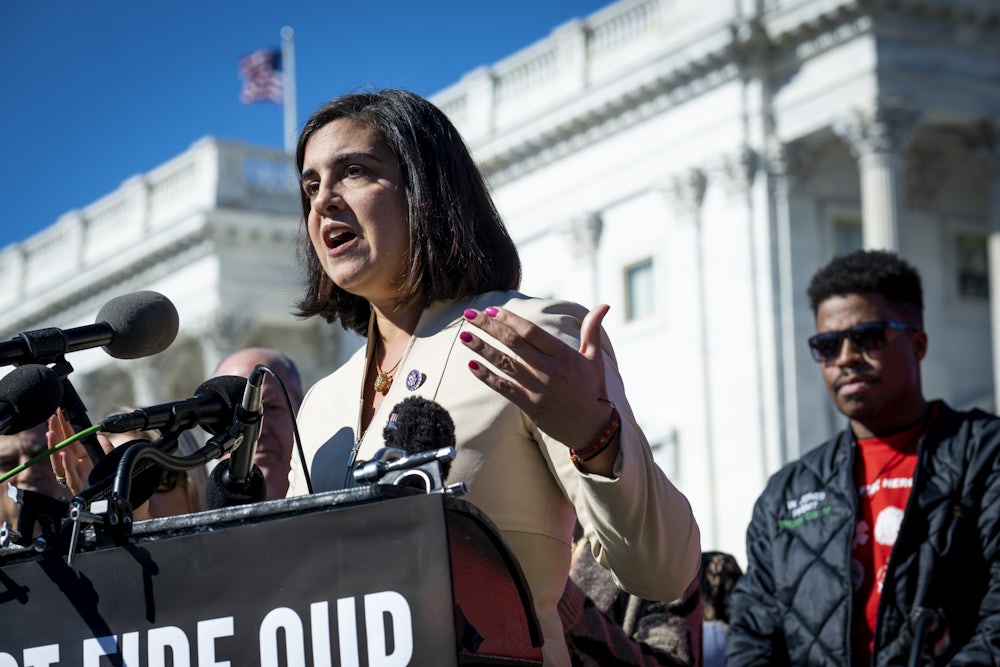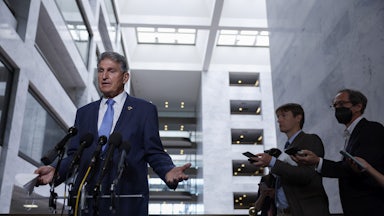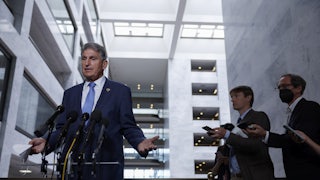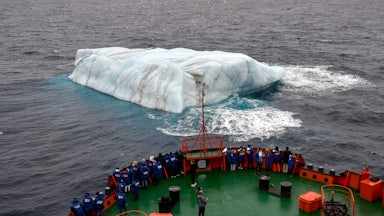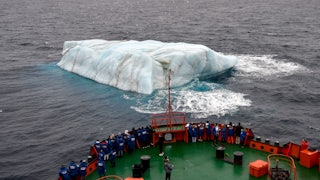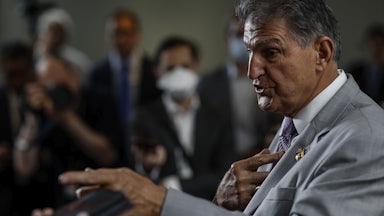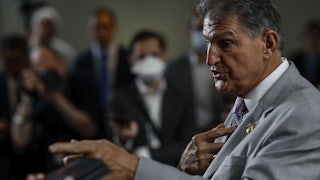Republicans love to blame Democrats for crime and this election cycle is no exception. Conservative January 6 apologist and Staten Island Congresswoman Nicole Malliotakis has blamed Democrats’ “pro criminal” policies for “skyrocketing” crime in New York City. Trump has been doing the same all over the country, characterizing our nation as a “cesspool of crime,” our cities as “war zones, literal war zones,” declaring that we have “blood, death, and suffering on a scale once unthinkable because of the Democrat Party’s effort to destroy and dismantle law enforcement all over the country.”
Stoking public fears over violent crime is central to the conservative pitch. The annual summer spike in violent crime in many cities makes it easier for Republicans to harp on the problem, as voters become understandably worried by shootings. But the right has been noticeably silent on one salient dimension of the crime problem: Heat waves worsen violence, and to be safer from violent crime we need to address climate change.
We’ve known for years that violent crime increases during the summer months. In the past, researchers weren’t always sure that it was because of heat, speculating that the summer vacation, with more young men up to no good, was the problem, or that spending time outside, as we do in warm weather, occasions more interaction, for better and for worse. But newer research has made the links to heat waves much clearer, suggesting that without intervention global warming will lead to more murders.
Research shows that on average, violent crime increases by over 5 percent on days hotter than 85 degrees Fahrenheit compared to days below that threshold. Studies mapping violent crime and weather in Los Angeles and Chicago show violence reliably rising with the temperature. This effect has been found by different scholars and in countries all over the world. A 2021 study using data from 159 countries from 1970 to 2015 even found that higher temperatures were associated with more deaths from terrorist attacks. An Australian study found that daily assault counts rose as the temperature rose, as did another study in Seoul, South Korea. Finnish researchers found that spikes in temperature explained about 10 percent of the variation in that nation’s violent crime rate.
Like many other problems associated with extreme weather, this one hits the poor hardest. A study by University of Southern California researchers found that extreme heat was especially likely to exacerbate violence in low-income neighborhoods.
Part of the reason for the correlation between heat waves and crime may be that extreme heat affects our mental health, making us angrier and more aggressive. Although we don’t necessarily know all the reasons for this (one possibility is sleep loss) it makes intuitive sense, especially to those of us who get cranky when it’s too hot, and the research also suggests that the heat affects our serotonin in ways that make us more prone to impulsive behavior. Which is fine when that just means having a summer romance or ditching our work responsibilities to go to the beach. But the correlation with violence speaks to much more alarming effects.
We’re already seeing increased violence associated with extreme heat. But what’s scarier is that it if climate change continues, the problem will get worse. The Finnish researchers predict that a global warming of two degrees Celsius (3.6 degrees Fahrenheit) would increase crime by more than 3 percent in non-tropical areas. Other scholars, too, are projecting that a warmer world will be a more violent one.
Republicans don’t want to talk about this.
This isn’t surprising, given conservative resistance to pretty much any policy response to crime that focuses on compassionate prevention rather than punitive reaction. And Republicans have a particular antipathy to policies mitigating or addressing climate change. The Senate Democrats just passed a historic climate package and not one Republican senator voted for it, despite their endless exploitation of the crime problem. In fact, when they’re not too busy blaming Democrats for crime, Republican politicians are running against climate policy. Malliotakis, for all her fearmongering on crime, has criticized Democrats for focusing too much on climate and has called Biden’s efforts to support renewable energy “nonsensical.” Trump said last month of rising sea levels, mocking environmentalist concerns, “We’ll have a little bit more beachfront property. That’s not the worst thing in the world.” Florida Governor Ron DeSantis—who is expected by many observers to run for president in 2024 if Trump does not—wants to bar state pension funds from even considering climate in their investment decisions. Explaining himself, the governor called ESG (an abbreviation for Environment, Social and Governance, the term is shorthand for the business trend toward considering social goals along with profit maximization) an example of how “the upper echelons of our society” are imposing a “woke ideology on the economy.”
The right is not even pretending to be serious about climate. Given how persuasive the research is linking heat waves and violence, the only reasonable conclusion to draw is that they’re not serious about addressing violent crime, either. In the long run, the more action we take to curb global warming, the more peaceable our cities will be, and the safer our streets.
